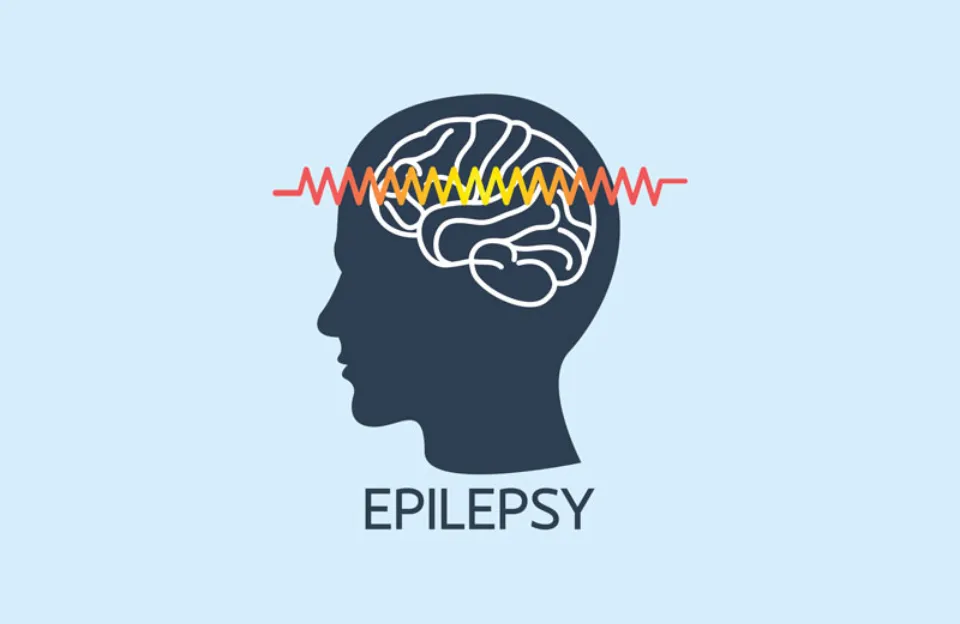A patient’s quality of life can be significantly impacted by epilepsy. The typical day of an epileptic may include brief seizures, disoriented periods, and odd sensations. The patient’s life could be in danger if these episodes start abruptly and last for a few seconds to a few minutes. We spoke to Dr Satwant Singh Sachdeva, Senior Consultant Neurology, Manipal Hospital Patiala, to understand more about the relationship between the two, and how the onset of this condition can be prevented with some easy lifestyle changes.
Epilepsy and Memory: Are They Connected?
Epilepsy is a neurological condition in which the brain’s activity changes abnormally, resulting in twitching sensations and seizure attacks in which the person loses all awareness and balance. Epilepsy can have a prominent impact on the overall health of the individual, including their brain health and memory.
Here’s all you need to know about how epilepsy impacts the memory of a patient:
During An Episode of Seizure
The entire brain may be affected during a seizure attack, or only a portion of it. A partial or complete seizure of any kind can affect a person’s memory. This can be felt more strongly if the seizures are concentrated in the frontal lobes of the brain, which are in charge of storing past memories. More frequent and severe seizures result in a greater impact and memory loss.
After a Seizure Attack
It can be challenging to remember where you are or what you were doing prior to the attack. As the brain works to recover from the episode, memories of the day and the events may appear hazy. Memory issues may arise if the person experiences seizures that target the frontal or temporal lobes of the brain.
Medicine for Seizures May Cause a Lack of Focus
Lethargy and a lack of concentration are common side effects of anti-epileptic medication. With higher doses of various anti-epileptic medications, there is an increased risk of memory loss. Because of this, patients must talk with their doctor about the risk before beginning a medical regimen.
Risk of Alzheimer’s
Alzheimer’s disease affects people with epilepsy because seizures trigger neurodegenerative processes. Alternately, epilepsy seizures may begin as a result of Alzheimer’s disease.
How to Prevent the Onset of Epilepsy?
Patients with epilepsy are more likely to experience some memory lapses, such as those involving specific words or event’s numerical details. For some patients, it may be challenging to remember names and numbers. Over time, epilepsy has had an impact on the brain, causing symptoms other than seizures, such as fear and anxiety, loss of awareness, haziness, confusion, and uncontrollable limb twitching. Epilepsy cannot be cured; it can only be controlled or suppressed through dietary changes and medication. This makes preventing epilepsy even more critical. If they happen at the wrong time, such as when crossing a road, epileptic seizures can be fatal. So here are a few ways to prevent the onset of epilepsy:
- Prevent injuries to the brain: One of the main causes of epilepsy later in life is traumatic events involving the brain. Wearing a proper helmet or taking one extra precaution to avoid brain injuries can make a significant difference.
- Get vaccinated: Epilepsy can be brought on by viruses such as the herpes virus, HIV, influenza virus, and others. The risk of developing epilepsy is reduced by protecting oneself from all of these infections with the proper precautions and vaccinations.
- Practising awareness: The most crucial element in preventing any illness is awareness. To ensure prompt treatment, be aware of the disease’s early signs. It will be easier to prevent epilepsy if you are aware of its causes. People who are more susceptible to epilepsy, for instance, can undergo routine screenings.
In this way, memory loss risks can be reduced and epilepsy itself can be controlled. Here are some ways to help with memory loss as an epilepsy patient:
- Seizure control medication: Take medications to lessen the negative effects of seizures on the brain. Never take medication without a correct diagnosis and discussion with a medical professional, please. Make sure to take your medications as directed and to never abuse them.
- Manage stress and mood disorders: Due to the psychological and physical effects of seizures, people with epilepsy are more likely to experience anxiety and depression. Chronically negative and depressive moods are detrimental to the functioning of the brain. Patients must therefore actively prevent this by taking appropriate action. They can establish a small group of helpful people to assist them, make an effort not to worry about their condition, and seek counseling if necessary.
- Manage your lifestyle: Exercise, nutrient-rich diets, and mental exercises can all help to maintain a healthy body and mind while working to improve memory.
More than half of epilepsy sufferers are able to successfully control their symptoms and lead regular lives. With the right medical advice and the right safety equipment, people can continue to live a healthy and worry-free life.



